Is Your HVAC System Protected From Power Surges?
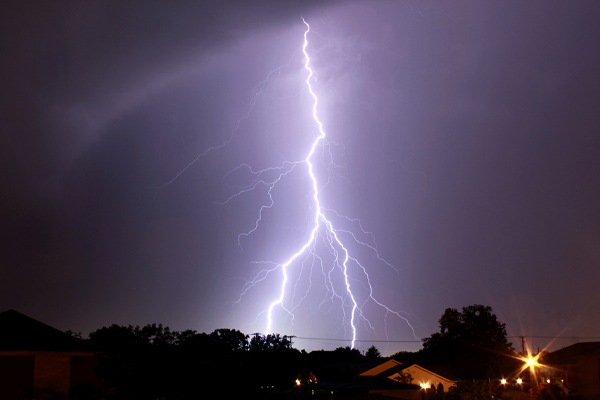
HVAC systems are an essential component of modern buildings, providing comfort and safety to occupants. However, these systems are vulnerable to power surges, which can cause significant damage and downtime. Power surges often occur due to lightning strikes, power outages, or electrical grid fluctuations. A power surge sends a sudden rush of electrical current through the system, potentially damaging critical components such as the compressor, fan motor, and control board. This can lead to costly repairs or even the replacement of the entire system.
It is crucial to protect HVAC units from power surges by installing surge protectors and following best practices for electrical safety. This article discusses HVAC surge protection.
Is Your HVAC System Protected From Power Surges?
Contents
If you are asking this question, chances are high that you have not protected your HVAC system from power surges. To ensure that your system is equipped to survive power surges, get the help of an expert HVAC technician. They can advise and suggest how to improve your system, so you are ready for power surges and outages.
What is a Power Surge?
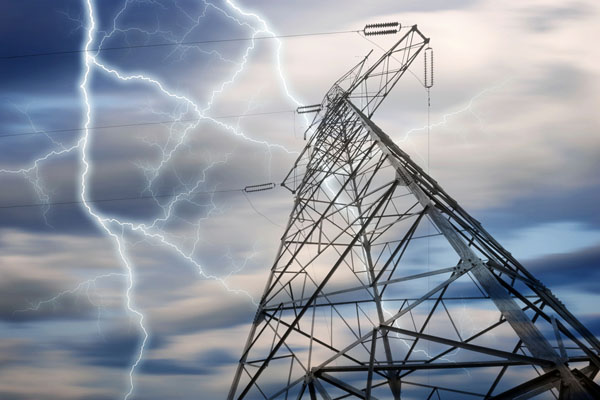
A power surge is a sudden jolt in electrical voltage that exceeds the normal or expected level in a power supply system. Power surges can occur when there is a sudden interruption in the flow of electricity, such as lightning strikes, power outages, or when large electrical appliances, such as air conditioners, refrigerators, or elevators, turn on or off.
A power surge can last for just a fraction of a second, but it can cause severe damage to electrical devices and appliances. The excess electrical energy can overload and damage the sensitive electronic components in these devices, causing them to malfunction or even fail completely.
Power Surge, Power Outage, & Brownout: What’s the Difference?
Power surges, power outages, and brownouts are all related to electrical power supply issues, but they refer to different problems. Here’s a brief explanation of each:
- Power surge: A power surge is a quick and brief increase in electrical voltage, typically lasting only a fraction of a second. Lightning strikes, power outages, or the operation of high-powered electrical equipment can cause power surges. These surges can damage electronic devices and appliances, which is why surge protectors are often recommended to help safeguard against them.
- Power outage: A power outage occurs when the electrical power supply to a building or area is interrupted, resulting in a complete loss of power. Power outages can be caused by a variety of factors, including severe weather, equipment failure, or scheduled maintenance.
- Brownout: A brownout is a drop in voltage in an electrical power supply, resulting in dimming or flickering lights, reduced power to appliances, and other similar issues. Brownouts can be caused by various factors, including high demand on the power grid, equipment failure, or problems with the electrical system in a building or area.
Related Article: How Can UV Lights Improve Your HVAC System?
HVAC Components That Are Impacted By A Power Surge
HVAC Control Board
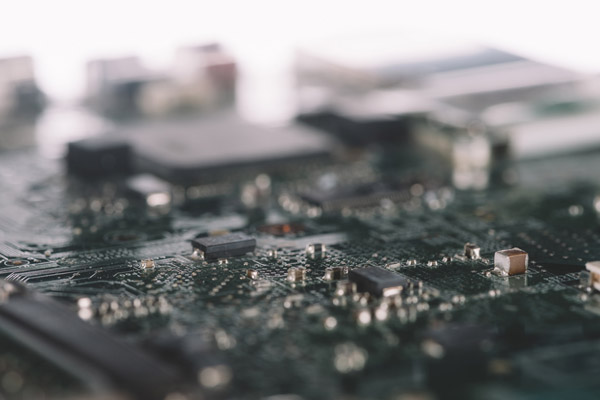
The HVAC system’s “brain” is the control board, which can be damaged by a power surge, leading to a breakdown in communication with the thermostat. This damage will cause the HVAC system to malfunction, resulting in inadequate heating or cooling, leaving you feeling uncomfortable in extreme temperatures.
HVAC Capacitor
The oval-shaped device, known as a capacitor, is responsible for storing electrical charge that powers any electrical components in your HVAC system. In case of a power surge, the capacitor may become damaged, leading to issues with the proper operation of your HVAC system.
HVAC Relay Switch
The function of this switch is to activate or deactivate specific components of your HVAC system that require high-voltage power. For instance, the electrical contactor in most relay switches has a coil around it. If the voltage surpasses a certain level, the coil may burn out, resulting in a disrupted circuit and malfunctioning of the relay switch.
Related Article: How Does Your HVAC Affect Your Skin?
HVAC Compressor Motor
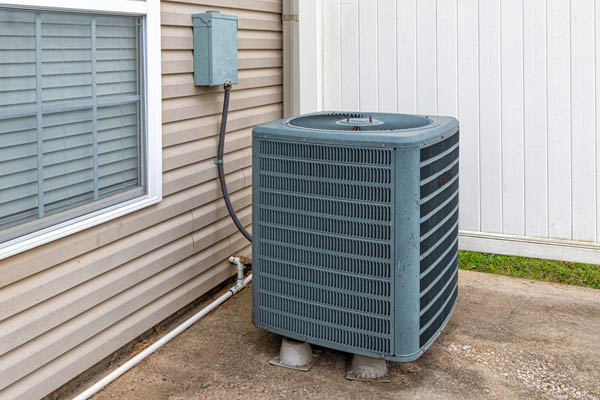
Your HVAC system’s compressor motor is a box with wires extending from it. Its function is to take refrigerant at low pressure and cool temperature and then increase the pressure and temperature by compressing it.
The motor is the primary component in the compressor that is susceptible to damage. It comprises multiple wires that convert electrical energy into kinetic energy. A power surge could cause the electrical energy to overheat the wires, resulting in their combustion. Also, a damaged motor will not operate correctly, and the compressor will fail to function correctly.
How To Promote HVAC Surge Protection In Your Home
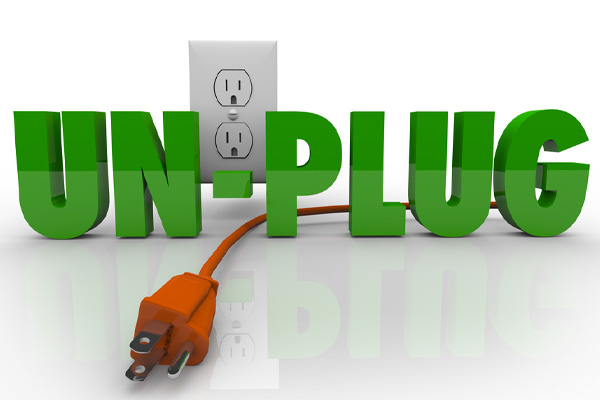
Power surges can cause significant damage to HVAC systems and their corresponding accessories, resulting in costly repairs or replacements. Here are some tips to prevent power surge damage to your HVAC system:
- Install Surge Protectors: Surge protectors can protect your HVAC system from sudden power surges. Surge protectors can be installed on your HVAC unit and on electrical panels to provide an extra layer of protection against power surges.
- Unplug Appliances During Storms: During thunderstorms or other severe weather, unplugging your HVAC system and other appliances is advisable to prevent damage from lightning strikes or power surges.
- Use High-Quality Wiring: High-quality wiring and components can help prevent power surges from damaging your HVAC system. It is best to have a professional electrician install the wiring and components to ensure proper installation.
- Maintain Your HVAC System: Regular maintenance of your HVAC system can help prevent damage from power surges. This includes cleaning and replacing air filters, checking the refrigerant levels, and inspecting electrical connections.
- Consider a Whole-House Surge Protector: A whole-house surge protector can protect your entire home from power surges, including your HVAC system. This type of surge protector is installed at the main electrical panel and can cover all the appliances in your home.
Warranty Warning for HVAC Power Surge Damage
The HVAC warranties offered by HVAC manufacturers do not cover damages from power surges. Although homeowners’ insurance may sometimes cover the costs, it can be challenging to substantiate such claims since the damage may occur gradually. As a result, you may be liable for costly HVAC repairs due to circumstances such as a lightning strike, overworked electrical circuits, or problems with your appliances.
Related Article: Top 7 Things You Should Never Do To Your AC Unit
Conclusion
HVAC systems are expensive but necessary for your home’s comfort. You must take the necessary steps to prevent costly damages from power surges. Investing in preventative measures is better than expensive repairs and replacements. Seek the advice of your trusty HVAC professionals to take care of it.
Call McAllister Energy For All Of Your HVAC Requirements

McAllister Energy is the top provider of heating and cooling services in southern New Jersey. Our team comprises certified technicians who are well-versed in all aspects of HVAC tune-ups, repairs, installations, replacements, and more. You can trust us to service your system properly, as we are the most sought-after HVAC service provider in the area.
We offer the region’s most affordable heating and cooling services and are synonymous with quality and affordability. Our maintenance services not only improve comfort and energy efficiency but also reduce home heating and cooling costs. Our team can recommend the best HVAC solution for your home or business while working within your budget. We stand behind all our work and guarantee your satisfaction. To schedule a service appointment, call McAllister Energy today!
You can click here to contact us now or call us at (856) 665-4545 to find out more! Click the link to view our service area.